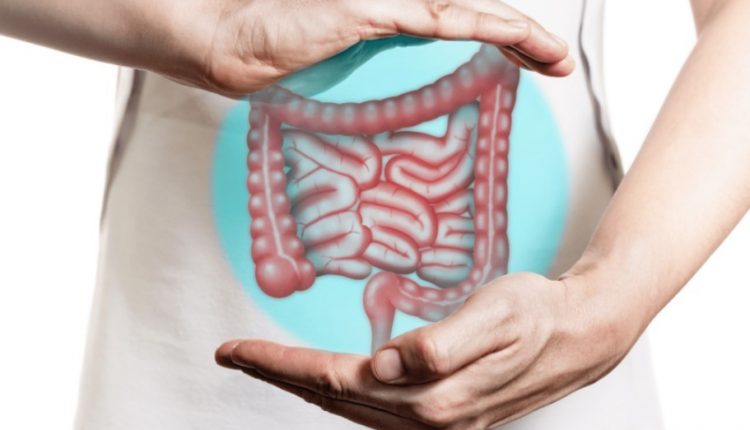
Diverticula: what are they and what impact do they have on our health?
Diverticula are extroversions, with the appearance of small pouches, that form in areas of lower resistance of the intestinal wall
Diverticula are localised in 65% of cases in the last tract of the colon, called the sigma
The term diverticulosis indicates the presence of diverticula in the colon: it manifests itself mainly with increasing age, is characterised by the absence of symptoms and is diagnosed almost by chance.
The presence of symptoms associated with diverticula is called uncomplicated, symptomatic diverticular disease: it is a syndrome characterised by pain, abdominal bloating and altered intestinal function, in the absence of inflammation.
Diverticulitis, on the other hand, is characterised by inflammation of the diverticula and is associated with more pronounced and prolonged symptoms and altered blood tests.
The latter condition can be complicated and require urgent intervention.
What are the symptoms of diverticulosis?
Diverticulosis is an asymptomatic condition (not associated with symptoms).
Uncomplicated, symptomatic diverticular disease can result in disruption of the normal functioning of the intestine and manifest itself with a range of problems, some of which are very similar to those found in irritable bowel syndrome, including:
- Abdominal pain and bloating
- Constipation and diarrhoea or an alternation of the two
- Flatulence
- Emission of mucus in the stool
What are the causes of diverticula?
The formation of diverticula and the causes of diverticular disease are multifactorial.
The following are considered risk factors for diverticulum formation
- Age
- Gender (women are more susceptible)
- Genetic factors
- Nutrition
- Obesity
- Sedentariness
- Certain medications, such as non-steroidal anti-inflammatory drugs (NSAIDs)
How are diverticula diagnosed?
Diverticula are usually occasionally diagnosed during colonoscopies or radiological tests performed for other reasons.
The tests that allow diverticula to be diagnosed are:
- Colonoscopy
- The virtual colonoscopy, which has the advantage of giving additional information on the state of the abdominal wall;
- Abdominal CT scan
- Ultrasound
Is it possible to prevent diverticula?
Modifiable risk factors responsible for the formation of diverticula include diet and lifestyle.
Some simple steps to follow are:
- Eat more fibre
- Drink plenty of water
- Regular physical activity
- Have a regular bowel function
What are the causes of diverticulitis?
Diverticulitis is caused by inflammation of the diverticula and is characterised by more intense and prolonged symptoms and changes in blood tests:
- Localised abdominal pain predominantly on the left side
- fever
- Increase in white blood cells (neutrophilic leukocytosis)
- Increased inflammatory indices, such as PCR
In complicated forms of diverticulitis there are symptoms and signs that may lead one to suspect complications:
- Nausea and vomiting may lead one to suspect intestinal obstruction (narrowing of the lumen of the intestine)
- The need to urinate can often be linked to inflammation of the urinary tract.
- The emission of bright red blood from the anus may indicate bleeding from a diverticulum.
Diverticulitis can be complicated in about 5% of cases.
How is diverticulitis treated?
For patients with uncomplicated diverticulitis, doctors may recommend treatment at home.
In the case of complicated diverticulitis, hospitalisation may be necessary.
Treatments for diverticulitis may include:
- Antibiotics
- Medication for pain
If diverticulitis does not improve with treatment, surgery may be necessary to remove part of the colon.
Read Also
Emergency Live Even More…Live: Download The New Free App Of Your Newspaper For IOS And Android
Gastro-Oesophageal Reflux Disease (GERD): Symptoms, Diagnosis And Treatment
Diverticula: What Are The Symptoms Of Diverticulitis And How To Treat It
Irritable Bowel Syndrome (IBS): A Benign Condition To Keep Under Control
Gastroesophageal Reflux: Causes, Symptoms, Tests For Diagnosis And Treatment
Non-Hodgkin’s Lymphoma: Symptoms, Diagnosis And Treatment Of A Heterogeneous Group Of Tumours
Helicobacter Pylori: How To Recognise And Treat It
A Baby’s Gut Bacteria May Predict Future Obesity
Sant’Orsola In Bologna (Italy) Opens A New Medical Frontier With Microbiota Transplantation
Microbiota, The Role Of The ‘Gate’ That Protects The Brain From Intestinal Inflammation Discovered
What Are The Differences Between Diverticulitis And Diverticulosis?
Colonic Diverticular Disease: Diagnosis And Treatment Of Colonic Diverticulosis



